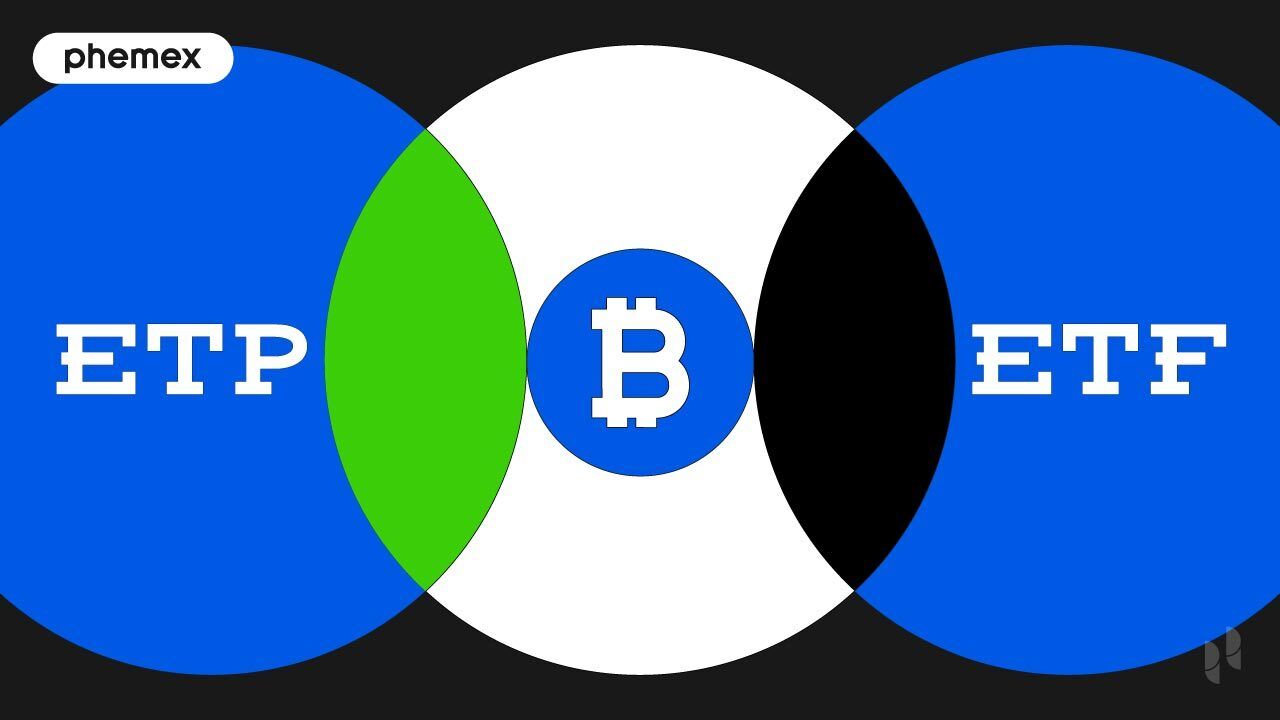What are Eth ETFs?
Ethereum ETFs (Exchange-Traded Funds) stand at the crossroads of conventional financial systems and the dynamic domain of cryptocurrencies, providing investors with a streamlined route to engage with Ethereum's growth prospects without the direct involvement or risks typically associated with cryptocurrency transactions. These funds encapsulate the value of Ethereum within a product that's traded on regulated stock markets, thereby broadening the accessibility of cryptocurrency investment to a diverse array of investors—from those new to the crypto world to experienced traders looking to enrich their portfolios with digital assets.
The core function of Ethereum ETFs is to replicate the price movements of Ethereum as closely as possible, offering investors a reflection of Ethereum's market performance through fund managers' active acquisition and holding of Ethereum or related financial derivatives. Consequently, the value of ETF shares fluctuates in accordance with the price of Ethereum, adjusted for any associated operational costs and management fees. This arrangement permits investors to partake in Ethereum's market activity within a regulated, more familiar framework, eliminating the complexities of managing digital wallets and engaging directly with crypto exchanges.
Ethereum ETFs also play a crucial role in melding the realm of cryptocurrencies with traditional investment strategies, enabling investors to capitalize on the unique attributes of digital assets—such as high volatility and potential returns—while also employing diversification to manage risk. The straightforwardness of trading Ethereum ETF shares through standard brokerage accounts integrates them effortlessly into broader investment strategies, sidestepping the intricacies often involved with cryptocurrency dealings.
Beyond offering market exposure to Ethereum, these ETFs aid in the wider recognition and integration of cryptocurrencies into the established investment landscape. Operating under the aegis of stock market regulations, Ethereum ETFs bring a measure of security and regulatory oversight, appealing to those cautious of the cryptocurrency market's less regulated aspects. They symbolize a blending of the innovative spirit of cryptocurrencies with the disciplined structure of traditional finance, paving the way for significant investments into the crypto sector from the broader investment community.
Nevertheless, Ethereum ETFs encapsulate more than just a financial opportunity; they signify the ongoing fusion of the traditional financial sphere with the emergent digital economy, driven by blockchain technology and digital currencies. This merging highlights the evolving perception of digital assets as pivotal components in transforming how value is exchanged, investments are made, and the broader financial system operates in the era of digital technology.
How does it work
Ethereum ETFs serve as a bridge, connecting the forward-thinking world of cryptocurrency with the established realm of traditional finance, thereby offering a regulated and straightforward method for investors to access the Ethereum market. The mechanism behind Ethereum ETFs is meticulously crafted to closely emulate Ethereum's price fluctuations, providing an investment experience that mirrors the actual market behavior of Ethereum within a regulated and familiar investment framework.
The essence of how Ethereum ETFs operate lies in the fund's strategy of acquiring and managing either Ethereum itself or financial derivatives linked to Ethereum's market performance. Through active management, fund managers ensure that the ETF's portfolio mirrors the live market price of Ethereum as accurately as possible. This is achieved by either directly purchasing Ethereum or entering into derivative contracts that are influenced by Ethereum’s market price, thus syncing the ETF's performance with Ethereum's market movements.
Upon securing its Ethereum holdings, the ETF then offers shares to the investing public. These shares symbolize a portion of the collective Ethereum assets under the ETF's management. Investors are afforded the opportunity to trade these shares on conventional stock exchanges via standard brokerage accounts, much like any other publicly traded stock. This feature significantly enhances accessibility for those accustomed to the stock market but possibly unfamiliar with the nuances of cryptocurrency trading.
Investing in an Ethereum ETF allows individuals to engage with the market dynamics of Ethereum indirectly, bypassing the direct purchase, sale, or custody of the cryptocurrency. This method significantly lowers the hurdles and risks typically associated with cryptocurrency ownership, including the management of digital wallets, safeguarding private keys, and navigating the complexities of crypto exchanges.
Ethereum ETF shares are actively traded during market hours, with their prices reflecting real-time market conditions. This enables investors to make immediate investment decisions, akin to the flexibility they enjoy with traditional equities. However, investors should be mindful that the ETF's share value incorporates the fund's operational costs and management fees, which could influence the overall investment outcome.
In summary, Ethereum ETFs represent a significant evolution in investment avenues, melding the traditional with the digital asset sector. They provide a transparent, regulated, and efficient vehicle for investing in Ethereum's growth, all while benefiting from the security and familiarity of the traditional financial infrastructure.
The Advantage of Eth ETFs
The introduction of Ethereum ETFs heralds numerous advantages, representing a significant leap in bridging the gap between the traditional financial system and the rapidly expanding cryptocurrency sector. These benefits go far beyond simple access, tackling many of the challenges and apprehensions commonly encountered by those exploring the crypto market.
Accessibility stands out as a major benefit of Ethereum ETFs. They provide a gateway for investors familiar with traditional finance, making it easier to invest in Ethereum without the technical complexities associated with cryptocurrencies. By allowing the purchase of ETF shares through standard brokerage accounts, these funds remove the need for investors to deal with digital wallets, private keys, or direct transactions on crypto exchanges. This lowered barrier to entry invites a wider audience to the crypto market, enhancing inclusivity and expanding the pool of investors.
Simplified Investment Process offered by Ethereum ETFs greatly diminishes the complexity of engaging with the crypto market. These ETFs abstract the detailed operations involved in cryptocurrency transactions, allowing investors to bypass the learning curve of blockchain technology, digital asset storage, and the intricacies of navigating crypto trading platforms. This streamlining appeals to a broad spectrum of investors, particularly those intrigued by digital assets but deterred by their complex nature.
Regulatory Assurance is a pivotal advantage of investing in Ethereum ETFs. Being anchored within the regulatory framework of traditional stock markets, these ETFs adhere to rigorous standards of compliance, oversight, and transparency. This structured environment offers a degree of security and protection for investors that direct cryptocurrency investments lack, addressing concerns over market volatility, security vulnerabilities, and fraudulent practices. The regulated stature of Ethereum ETFs provides peace of mind, ensuring investments are protected by established financial and legal safeguards.
Portfolio Diversification through Ethereum ETFs enables investors to incorporate digital assets into their portfolios seamlessly, without needing to overhaul their existing investment strategy. Positioning Ethereum ETFs alongside traditional investments such as stocks, bonds, and commodities allows for a well-rounded portfolio, leveraging the distinctive growth potential and market dynamics of digital currencies to potentially reduce risk and enhance returns.
Market Exposure to Ethereum's price movements without the direct ownership of the cryptocurrency is another significant advantage. This exposure allows investors to capitalize on Ethereum's market performance while minimizing the risks tied to direct cryptocurrency ownership, such as the potential for loss, theft, or adverse regulatory shifts.
In essence, Ethereum ETFs embody an innovative investment strategy, marrying the promising growth prospects of Ethereum with the familiarity and regulatory security of traditional finance. They mark a crucial development in making blockchain technology investments more accessible, regulated, and integrated into mainstream investment portfolios. By overcoming fundamental entry barriers and providing a diversified and accessible investment vehicle, Ethereum ETFs are set to significantly influence the widespread acceptance and integration of digital assets into conventional investment landscapes.
The challenges of Eth ETFs
Ethereum ETFs, while presenting a convenient and regulated path to investing in the burgeoning cryptocurrency market, come with their own set of challenges and limitations. For investors, understanding these potential pitfalls is vital to aligning their investment strategies with their goals and risk profiles.
Elevated Expenses emerge as a significant downside of Ethereum ETFs. The operational and management costs associated with these funds typically translate into fees for investors, which can diminish the returns on their investments. When juxtaposed with the relatively low costs of directly investing in cryptocurrencies, the fees associated with Ethereum ETFs can, over time, substantially erode investment gains, making direct investment in Ethereum a more appealing option for those looking at long-term growth.
Restrictions on Direct Cryptocurrency Ownership pose another challenge. Investors in Ethereum ETFs lack direct ownership of Ethereum, precluding them from engaging in activities intrinsic to the Ethereum network, like staking, participating in governance through voting, or using Ethereum for transactions in decentralized applications (dApps) and for smart contracts. This detachment from direct interaction with the Ethereum ecosystem means investors miss out on the full spectrum of benefits and utilities that come with holding cryptocurrencies directly.
Exposure to Regulatory and Market Risks is a further concern for Ethereum ETFs. Operating within the traditional financial system subjects these ETFs to the same market manipulations, regulatory shifts, and systemic vulnerabilities encountered by conventional securities. Additionally, the fluid regulatory environment surrounding digital assets could introduce further complexities and uncertainties for investors in Ethereum ETFs.
The Nature of Indirect Investment might not align with the preferences of all investors, especially those who value the direct control and involvement afforded by owning cryptocurrencies outright. The decentralized and autonomous nature of cryptocurrencies is a significant draw for many enthusiasts, which is somewhat diluted when investing through an ETF.
Potential Tracking Discrepancies represent an additional challenge. Ethereum ETFs strive to mirror the price movements of Ethereum accurately, but management strategies, timing differences in trades, and the use of derivatives to emulate Ethereum's price can result in tracking errors. Such discrepancies might lead to performance variances between the ETF and Ethereum's actual market performance, potentially undermining the ETF's effectiveness as a vehicle for Ethereum investment.
In essence, while Ethereum ETFs introduce a novel and accessible means for investors to gain exposure to Ethereum within a structured and regulated environment, they also bring inherent disadvantages. These include increased costs, limitations on direct cryptocurrency engagement, susceptibility to broader financial market risks, a preference for direct investment experience, and the risk of performance misalignment. Prospective investors should carefully consider these factors in light of their investment goals and the degree of direct engagement they desire with the cryptocurrency market.
Read More
- What would an Ethereum ETF Mean for Crypto?
- What are ETFs & How do they Work?
- What is a Bitcoin ETF?
- Phemex Analysis in A Minute: How to Capitalize on ETH's Bull Run!
- What Is an ETP? – Traditional and Bitcoin ETPs Explained
- Bitcoin ETF Approval 2024
- Ethereum 2.0 – Everything You Need to Know
- What Is Ethereum: Ground Zero of the Next Digital Era







